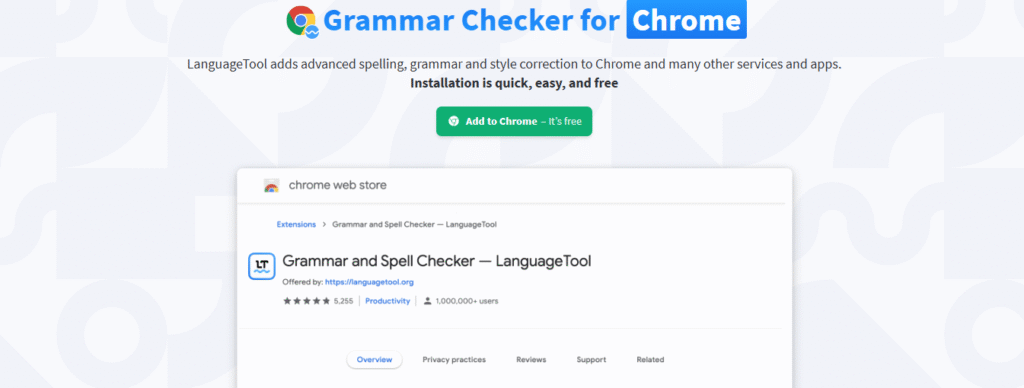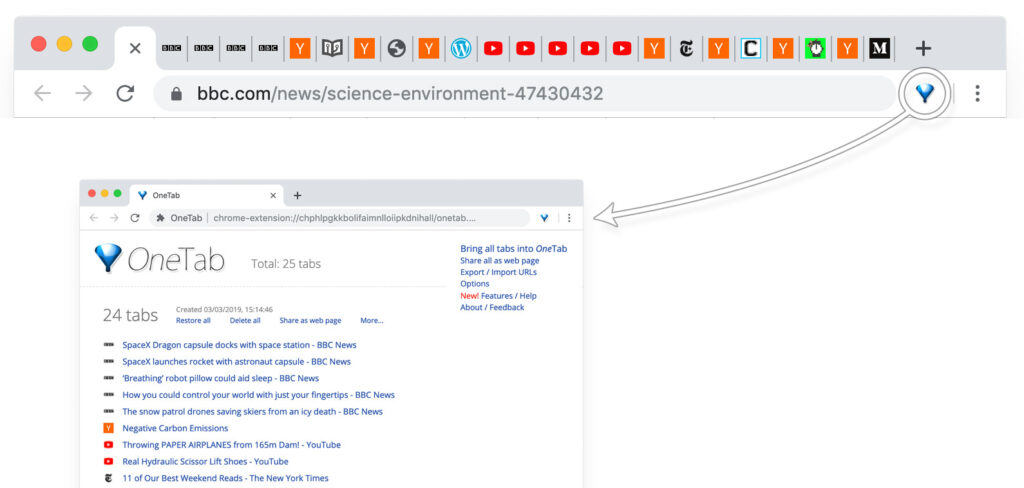In 2025, writing is no longer just about stringing words together. Whether you’re a blogger, content marketer, copywriter, or editor, your workflow likely involves grammar checks, content structure improvements, SEO optimization, and more. Chrome extensions have become essential tools that bring these features directly to your browser, streamlining your entire writing process.
This article covers the best Chrome extensions for writers and editors in 2025, handpicked based on performance, usefulness, and ease of use.
Why Writers and Editors Should Use Chrome Extensions
Writing and text editing directly in your browser is faster, more efficient, and often integrated with the platforms you use every day like Google Docs, Gmail, Notion, and WordPress. Chrome extensions can help you:
- Correct grammar and spelling errors in real time
- Improve tone, clarity, and structure
- Rephrase content using AI
- Research faster and organize notes
- Stay focused and avoid distractions
- Optimize content for SEO and engagement
What Makes a Great Chrome Extension for Writers?
While there are hundreds of extensions out there, only a few stand out when it comes to features, usability, and compatibility. The extensions listed here are selected based on the following criteria:
- Useful features for writing and editing
- Clean and intuitive user interface
- Compatibility with popular writing platforms
- Good performance without slowing down the browser
- Free plan availability or fair pricing
Top Chrome Extensions for Writers and Editors in 2025
1. Grammarly
Grammarly is one of the most widely used writing assistants. It provides real-time grammar, punctuation, and style suggestions. In 2025, its AI rewriting and tone detection features are more advanced than ever, helping writers polish their content across emails, documents, and online platforms.

Key Features:
- Grammar, punctuation, and clarity suggestions
- Tone detector and writing goals
- AI rewriting and auto-corrections
- Works in Gmail, Google Docs, WordPress, and more
Free Plan: Yes
Premium Plan: Available with advanced suggestions
2. ProWritingAid
ProWritingAid offers in-depth grammar checks, writing style analysis, and readability improvements. It’s ideal for long-form content writers, authors, and editors who want detailed feedback.

Key Features:
- Style and grammar reports
- Contextual thesaurus and readability analysis
- Integration with Google Docs and WordPress
Free Plan: Limited features
Premium Plan: Offers full reports and unlimited checks
3. Wordtune
Wordtune focuses on rewriting and enhancing clarity. It uses AI to suggest alternative phrasings and sentence structures that match your intended tone and context.

Key Features:
- Sentence rewrites
- Formal, casual, or concise tone options
- Works on email platforms, documents, and web editors
Free Plan: Limited rewrites per day
Premium Plan: Unlimited access and advanced suggestions
4. QuillBot
QuillBot is an AI paraphrasing tool known for its ability to rephrase sentences without losing meaning. It also includes grammar checking, summarizing, and citation generation.

Key Features:
- Paraphrasing in multiple styles
- Grammar checker and summarizer
- Plagiarism detection (in premium version)
Free Plan: Available with basic features
Premium Plan: Access to all tools and higher word limits
5. LanguageTool
LanguageTool is a multilingual grammar checker that respects privacy and works across major platforms. It’s a great Grammarly alternative for users looking for open-source-style tools.

Key Features:
- Grammar and punctuation checking in 20+ languages
- Style and tone improvements
- Browser and document integration
Free Plan: Yes
Premium Plan: Offers advanced style checks and team options
6. Writer.com Extension
Designed for teams and businesses, Writer focuses on brand consistency, style guides, and tone management. It’s ideal for marketing teams and enterprise-level content writing.

Key Features:
- Custom writing rules and terminology enforcement
- Tone, clarity, and brand style checks
- Integrates with Google Docs and CMS platforms
Free Plan: Limited
Premium Plan: Team-based pricing with custom features
7. Evernote Web Clipper
For writers who research a lot, Evernote Web Clipper allows you to save full web pages, articles, and notes in an organized format. It’s a great tool for gathering references or quotes.

Key Features:
- Clip full pages, images, or simplified articles
- Tag, highlight, and organize research
- Syncs with Evernote app
Free Plan: Yes
Premium Plan: Available with additional storage and features
8. Headline Studio by CoSchedule
Headline Studio helps content marketers and bloggers create optimized headlines that get clicks. It provides real-time feedback on length, sentiment, power words, and SEO performance.

Key Features:
- Headline analyzer with score breakdown
- SEO insights and emotional impact
- Competitor headline comparison
Free Plan: Yes
Premium Plan: Offers advanced headline suggestions and history tracking
9. OneTab
If you’re someone who keeps multiple tabs open while researching or writing, OneTab can help you stay organized and reduce browser clutter. It converts all tabs into a single list you can restore later.

Key Features:
- Save all open tabs in one click
- Reduce memory usage
- Restore sessions easily
Free Plan: Yes
Premium Plan: Not needed
10. Google Dictionary
Writers constantly search for definitions, synonyms, and meanings. Google Dictionary allows you to double-click any word to see its definition instantly, without leaving your page.

Key Features:
- Quick definitions on any webpage
- Synonyms and pronunciation help
- Works on all content platforms
Free Plan: Yes
Premium Plan: Not applicable
Bonus Tools for Writer Productivity
While not strictly writing tools, the following extensions can help writers stay focused and organized:
- StayFocusd – Block distracting websites to stay productive
- Notion Web Clipper – Save and organize research for writing projects
- Todoist for Chrome – Manage writing deadlines and task lists
- Nimbus Screenshot – Capture ideas and notes from websites visually
How to Use These Extensions Effectively
While each extension offers unique value, the real power lies in how you combine them. For example:
- Use Grammarly or ProWritingAid for editing
- Use QuillBot or Wordtune for rewriting content
- Use Headline Studio to craft better titles
- Use OneTab and Evernote for organizing research
Build a personal writing stack that fits your workflow and content goals.
Final Thoughts
Chrome extensions have evolved from simple utilities to powerful writing assistants. Whether you’re editing an article, writing marketing copy, or managing a content team, the right tools can make all the difference. Start with a few core extensions and build your ideal writing workflow based on your needs.
If you’re a writer or editor aiming to save time and boost the quality of your work in 2025, these Chrome extensions are worth exploring.
Frequently Asked Questions
1. Can I use more than one extension at the same time?
Yes. Most extensions work together without conflict. For example, you can use Grammarly for grammar and QuillBot for rewriting simultaneously.
2. Which extension is best for academic writing?
ProWritingAid, LanguageTool, and QuillBot are excellent for academic writing due to their structure-focused and formal tone suggestions.
3. Are there privacy concerns with using writing tools?
Some tools, like LanguageTool, are more privacy-focused. Always review the privacy policy of each tool, especially if you’re handling sensitive content.
